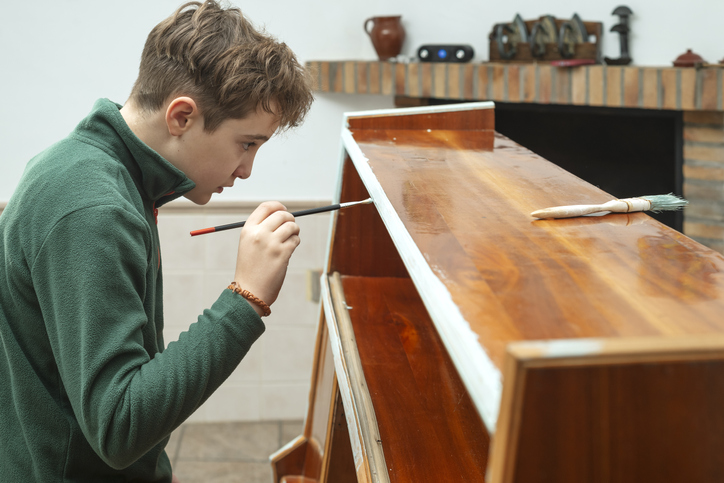Savvy Brits turn to sustainability to save

New study from Aviva reveals more than two fifths (43%) of Brits are recycling or up-cycling existing items, while 42% are repairing possessions themselves, rather than replacing them.Just under 7 in 10 UK adults (69%) would rather fix an item in their home if it was damaged or broken, rather than buy a new one.Conserving cash is one of the main reasons for these repairs. More than half (57%) of UK adults are interested in repairing items to save money.Nearly a quarter (23%) of Brits have also taken to repairing instead of replacing, because of the cost of living – up from 18% in 2022.
Millions of consumers are ramping up repairs as they combine sustainability with saving, a new study from Aviva reveals.
The survey of 2,000 UK adults finds that more than two fifths (43%) of Brits are recycling or up-cycling existing items, while 42% are repairing possessions themselves, rather than replacing them. A similar number – 40% – of Brits are buying pre-owned items instead of new.
And these figures could be set to rise. The research suggests just under 7 in 10 UK adults (69%) would rather fix an item in their home if it was damaged or broken, rather than buy a new one.
Conserving cash is one of the main reasons for these repairs. The Aviva research found that overall, more than half (57%) of UK adults are interested in repairing items to save money, with nearly a quarter (23%) of Brits taking to repairing instead of replacing, because of the cost of living up from 18% in 2022.
The research also suggests just over a quarter (26%) of Brits are now buying pre-owned items to curb their spending as a result of the cost of living, rather than purchasing new, an increase of nine percentage points since 2022 (17%).
Shift towards sustainability
But it isn’t just the cost-of-living influencing people’s buying and repair habits. According to the research, more than a quarter (26%) of Brits say they are trying to be more sustainable. Almost a quarter 24% of adults think that buying second-hand is more economical than buying new, and just over a fifth of adults (21%) are worried about waste.
Societal influences are also playing their part in the upward trend of repairing, recycling, and thrifting in recent months. 1 in 9 (11%) UK adults have been encouraged by family and friends to repair, recycle, and buy pre-owned items, while 9% of Brits have seen influencers purchasing second-hand belongings and/or repairing their possessions.
Make do and mend
When it comes to mending belongings, more than three quarters (77%) of Brits would like to learn the skills to repair more items, with nearly 1 in 5 (19%) saying that they have increased repairing their items in recent months as they enjoy trying to repair things.
The research found that the items people are most likely to try fixing are clothing (47%), furnishings and furniture (both 32%) alongside children’s toys and baby items (26%).
Small electrical appliances are also on the agenda for repair, with just over 1 in 5 people (21%) feeling confident enough to mend things like a kettle, a toaster, or a pair of hair straighteners. Some Brits are even turning to online videos to help them mend their items.
But when it comes to big ticket items like TVs, fridges, computer equipment and phones, Brits are more likely to reach out to a professional to help with repairs. Half (50%) of Brits would ask an expert to fix large electrical appliances, while 42% would do the same for a phone or tablet.
However, 15% of Brits aren’t confident that they could make any simple repair themselves – and in an ironic turn of events, half (50%) of UK adults have even tried to repair an item but made it worse.
Looking to the future
Brits are also predicting that their habits will continue to look different in the future as they look for ways to manage the cost of living.
More than a third (38%) of people expect to buy more pre-owned items than new, a similar number (36%) expect to recycle and up-cycle existing items more often, while 34% expect to repair items themselves rather than replace them.
Aviva’s property claims team uses a variety of methods to help customers to repair items when making a claim and over the last 12 months has rescued 750 smartphones through its UK claims process. Aviva is also able to offer repair on 25%5 of accidental damage claims for jewellery and watches.
Kelly Whittington, Property Claims Director at Aviva, said:
“Our research suggests people are becoming more inclined to repair, renovate and recycle as they look to live sustainably as well as save cash.
“For Aviva, being able to repair items such as phones and jewellery is a huge win for our customers as these items often have a sentimental value – so when they make a claim, we can consider repairs as well as replacements. Repairs also contribute to global sustainability efforts by reducing waste and items going to landfill and reducing the consumption of precious metals and stones.
“While it is fantastic to see the enthusiasm for Brits repairing goods themselves, we urge people to only tackle repairs they are confident they can do safely. We also encourage Brits to check whether they can claim for repair with their home insurers who, like Aviva, will often have professional repair teams on hand for items that are more difficult to mend or professional cleaning teams for items that need professional cleaning.”
Authored by Aviva





